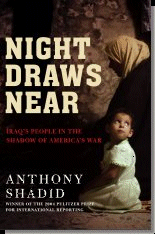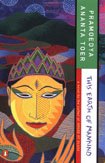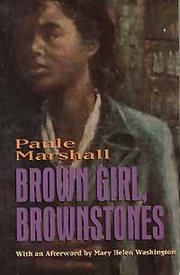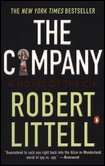(a) Surprisingly, I did not see The Trial [ed note: The Trial was the first book suggested but I failed to highlight it on updated lists*] or "In the Penal Colony" onAziz Huq is Associate Counsel in the Democracy program and in the Liberty and National Security program at the Brennan Center for Justice at New York University School of Law. Before joining the Center, he clerked for Justice Ruth Bader Ginsburg during the October 2003 term of the Supreme Court of the United States. Previously, he clerked for Judge Robert D. Sack of the Second Circuit Court of Appeals. Between his clerkships, Mr. Huq worked with the International Crisis Group (ICG) in Afghanistan, focusing on the constitutional drafting process. He subsequently worked with ICG in Nepal and Pakistan looking at the development of democratic and judicial institutions. He graduated summa cum laude from Columbia Law School in 2001 where he was Essay and Review Editor of the Columbia Law Review.your list. The term "Kafkaesque" today is a cliche used to refer to the illogical, self-justificatory structures of bureaucratic justice, but both of Kafka's works on point are richer and stranger, almost hallucinogenic in their feel. The sense of endless, coils of bureaucracy snaring a person—whose crime, perhaps is their irrational belief in rationality or their insistence that the world treat them rationally. Consider the image in "In the Penal Colony" of punishment as writing—excepting writing on the body of the prisoner, permanently marking and shaming them. Isn't there an echo or prefiguration of the photographed humiliations and abuses from Abu Ghraib? In some ways, Kafka's metaphorical presentation of totalitarian "logic" is more powerful than the literal depictions of a totalitarian state (like the Gulag Archipelago).
(b) Plowing the Dark by Richard Powers weaves several narratives together, one of which is the tale of a Middle-Eastern hostage. Powers is typically an evocative writer, although I have not read this book.
(c) In addition to novels, readers may be interested in An Evil Cradling by Brian Keenan. This is the account of the four-plus years of being a hostage of Hezbullah in Lebanon. It's not detailed on Lebanon and its politics, but focused on aspects of the imprisonment itself. Also, Gabriel Garcia Marquez's News of a Kidnapping is an excellent account of the exercise of the total loss of emotional and physical control that comes with unlawful confinement. It is also an interesting corrective to the usually over-lush prose style by the Nobel Prize winning Colombian.
Click here for Aziz's interview of Peter Bergen, author of The Osama bin Laden I Know: An Oral History of al Qaeda’s Leader; and here for his discussion of Tram Nguygen’s We Are All Suspects Now, which documents how counterterrorism policies have destroyed immigrants’ lives.
Thanks to Aziz for the insights and recommendations.
*Also, just as Aziz's message arrived, so did one from Professor Neal Katyal of Georgetown Law. He too suggested that Kafka's The Trial ought to be at the top of our list. Among other publications, Professor Katyal is the author of (with Laurence Tribe), "Waging War, Deciding Guilt: Trying the Military Tribunals," Yale Law Journal (2002). Thanks to Neal for the input.
--Marshal Zeringue






















